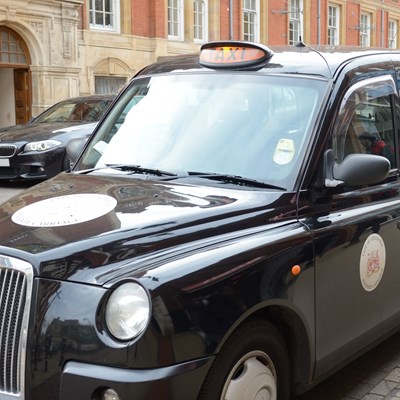IMPROVEMENTS to the quality of taxi services and vehicles will be made in order to make taxi travel easier and safer for passengers.
Leicester City Council has drawn up the Taxi Strategy which sets out a series of improvements to standards within the local taxi trade, to be brought into effect between now and 2025.
Some measures will be brought in straight away, while some longer-term improvements will be the subject of public consultations before they can be introduced.
The aims include improving customer service, safety and ensuring the trade is well regulated and supported by the city council, as well as a commitment to increase the number of low-emission vehicles in service.
The strategy will also look to tighten regulation around taxi drivers who are registered elsewhere but who operate within Leicester and will consider the introduction of CCTV within vehicles to improve the safety of both customers and drivers.
Announcing the Taxi Strategy today, Leicester deputy city mayor responsible for regulatory services, Cllr Piara Singh Clair, said: “This strategy brings together the work which is already ongoing around both private hire and Hackney carriage standards, and sets out how we will operate over the coming years to improve services and meet our environmental commitments around air quality and sustainable travel.
“Taxis provide a flexible and accessible door-to-door service and play an essential role in the city’s night-time economy when other forms of transport are not available.
“We want passengers to feel assured that the local taxi trade is effective, efficient and safe, with a competent, trustworthy workforce which is regulated fairly by the city council.
“We’ve already carried out consultation work with the taxi trade, passengers and other local stakeholders, and while some of the improvements in this strategy can be brought in fairly soon, others are likely to involve further consultation.
“In particular, we will be looking at working more closely with neighbouring licensing authorities, such as Wolverhampton, to assess the impact of taxis licensed elsewhere operating in the city.”
Some of the commitments set out in the strategy could be brought in over the next few months, including an clear comprehensive standards for drivers and operators, updated conditions of fitness and environmental sustainability of vehicles, and a better structure for consultation between taxi drivers, operators, unions and the city council.
There is also a commitment to joined-up operations with other councils, and better sharing of driver and vehicle records with police and neighbouring councils.
Medium-term aims include putting in place cashless payment options in all private hire and Hackney carriages.
Other planned measures include working with other councils to regulate ‘out of town’ drivers and better training and development of licensing staff working with the taxi trade.
Discussions are also planned to investigate the feasibility of more shared services in taxi licensing and regulation.
Over the next few years, there are plans to bring in online facilities for drivers or operators to make applications, renewals and payments, and ensuring all customers will be able to choose when making a booking between an ultra-low-emission or diesel vehicle, as well as being able to select wheelchair-accessible vehicles.
The introduction of CCTV and GPS tracking on all taxis will also be considered.
There are currently almost 2,000 taxi drivers licensed by Leicester City Council, and around 1,300 private hire vehicles run by 93 different operators, as well as just over 230 Hackney carriages, or ‘black cabs.’
